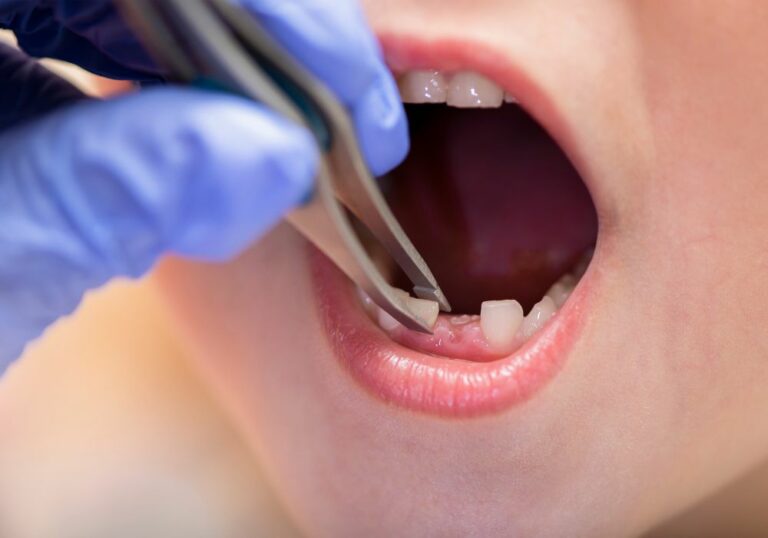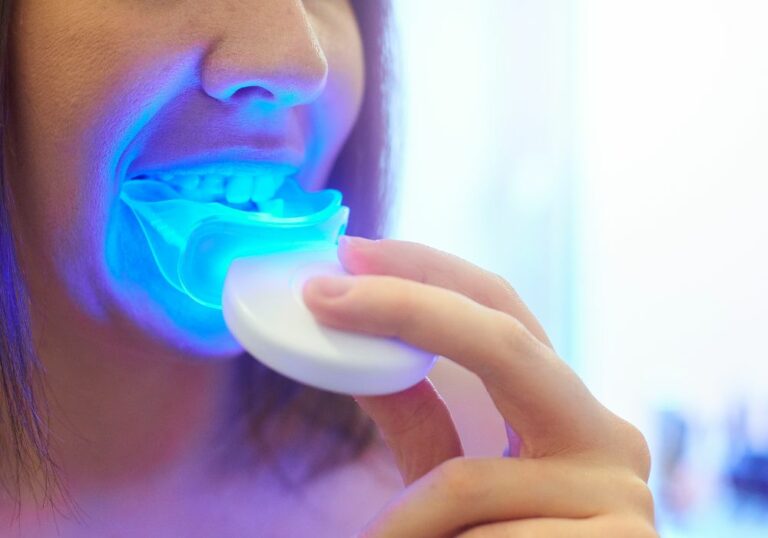Do you ever experience tooth pain when you’re sick? If so, you’re not alone. Many people experience tooth sensitivity or pain when they have a cold, flu, or sinus infection. This discomfort can be frustrating and distracting, but understanding the cause of your tooth pain can help you find relief.
One of the most common causes of tooth pain during illness is sinus pressure. The sinuses are located near the roots of the upper teeth, and when they become inflamed and congested, they can put pressure on these teeth. This pressure can cause pain, especially when you’re lying down or bending over. Additionally, some illnesses can cause dehydration, which can lead to dry mouth and tooth sensitivity.
Understanding Toothache

If you’ve ever experienced a toothache while you were sick, you know how uncomfortable it can be. Tooth pain can range from a dull ache to an intense throbbing sensation that can make it difficult to eat, sleep, or even concentrate. In this section, we’ll explore some common causes of toothache when you’re sick and what you can do to find relief.
Common Causes
- Sinusitis: One of the most common causes of tooth pain during illness is sinusitis. When you have a cold or flu, sinus congestion can cause pressure to build up in your head and face. This pressure can put strain on the roots of your upper teeth, leading to discomfort or even pain.
- Fever: Being sick with a fever can also lead to tooth pain. An increase in body temperature can cause the blood vessels in your gums to expand, which can contribute to inflammation and pain. Increased blood flow can also cause the nerves in your teeth to become more sensitive, making them more susceptible to pain.
- Dehydration: When you’re sick, it’s important to stay hydrated. Dehydration can cause your mouth to become dry, which can lead to tooth pain. Saliva helps to wash away bacteria and food particles that can cause tooth decay and gum disease. When you’re dehydrated, your mouth produces less saliva, which can lead to an increase in bacteria and tooth decay.
- Medications: Some medications that are commonly used to treat colds and flu can cause tooth pain as a side effect. Decongestants, for example, can cause dry mouth, which can lead to tooth decay and gum disease. Pain relievers like aspirin and ibuprofen can also cause tooth pain if you take them in large doses or for extended periods of time.
If you’re experiencing tooth pain while you’re sick, it’s important to talk to your dentist. They can help you identify the underlying cause of your pain and recommend treatments to help you find relief. In the meantime, you can try using over-the-counter pain relievers, warm saltwater rinses, or ice packs to help alleviate your symptoms.
Link Between Illness and Toothache
If you have ever experienced tooth pain while you were sick, you are not alone. There is a strong link between illness and toothache. Tooth pain can be a symptom of various illnesses, and it is important to understand the connection to take appropriate measures to alleviate the pain. In this section, we will discuss the link between illness and toothache, including sinus infections, viral infections, and inflammatory response.
Sinus Infection
If you have a sinus infection, you may experience tooth pain. Sinusitis is inflammation and swelling of the nasal passages and sinuses, which can cause pressure and pain in your upper teeth, especially the molars that are closest to your sinuses. The pain you feel can be referred pain, meaning that the pain is felt in one part of the body (the teeth), but the cause is in another part of the body (the sinuses).
Viral Infections
Viral infections such as colds and flu can also cause tooth pain. When you are sick, the blood vessels in your gums may expand and cause inflammation and pain. This, combined with sinus pressure, can make tooth pain even more severe. Additionally, some viruses can cause mouth sores that can lead to tooth pain.
Inflammatory Response
Illnesses that cause an inflammatory response in the body can also cause tooth pain. For example, autoimmune diseases such as lupus and rheumatoid arthritis can cause inflammation in the joints and tissues of the body, including the gums and teeth. This inflammation can lead to tooth pain and sensitivity.
In conclusion, tooth pain during illness is a common occurrence. Sinus infections, viral infections, and inflammatory response are just a few of the illnesses that can cause tooth pain. If you are experiencing tooth pain while you are sick, it is important to consult with your dentist to determine the underlying cause and appropriate treatment.
Symptoms to Look Out For

When you are sick, you may experience tooth pain as a symptom. Here are some symptoms to look out for if you are experiencing tooth pain while sick:
Prolonged Pain
If you are experiencing tooth pain that lasts for more than a few days, it may be a sign of a more serious issue. Tooth pain can be caused by a variety of factors, including sinusitis, cavities, or gum disease. If you are experiencing prolonged tooth pain, it is important to see a dentist as soon as possible to determine the cause and receive proper treatment.
Swelling
Swelling around the gums or face can be a sign of a dental infection. This can occur when bacteria enter the tooth through a cavity or crack and cause an infection in the tooth or surrounding tissue. If you are experiencing swelling around your tooth or gums, it is important to see a dentist as soon as possible to prevent the infection from spreading.
Fever
A fever is a common symptom of many illnesses, including dental infections. If you are experiencing tooth pain and a fever, it may be a sign of a dental infection. This can be a serious issue and should be addressed by a dentist as soon as possible to prevent the infection from spreading to other parts of the body.
In conclusion, tooth pain can be a symptom of many illnesses, including sinusitis, cavities, or gum disease. If you are experiencing tooth pain while sick, it is important to pay attention to the symptoms and seek treatment if necessary. By doing so, you can prevent the issue from becoming more serious and ensure a healthy recovery.
When to Seek Medical Help
If you are experiencing tooth pain when you are sick, it is important to monitor the pain and see if it goes away as your illness subsides. However, if the pain persists or worsens, it may be a sign of a more serious issue and you should seek medical help.
Here are some signs that you should seek medical attention:
- Severe pain that does not go away with over-the-counter pain medication
- Swelling of the gums or face
- Fever or chills
- Difficulty swallowing or breathing
- Pus or discharge coming from the affected tooth or gums
- Changes in vision or other neurological symptoms
If you experience any of these symptoms, it is important to seek medical attention immediately. Delaying treatment can lead to further complications and potentially serious health issues.
Your dentist or doctor will be able to diagnose the underlying cause of your tooth pain and provide appropriate treatment. This may include antibiotics to treat an infection, a root canal to remove damaged or infected tissue, or other procedures to alleviate pain and prevent further damage to your teeth and gums.
Remember, taking care of your oral health is an important part of overall health and well-being. If you are experiencing tooth pain, don’t hesitate to seek medical help to address the issue and prevent further complications.
Prevention and Home Remedies

Maintaining Oral Hygiene
Maintaining good oral hygiene is the best way to prevent toothaches and other dental problems. Brush your teeth twice a day with fluoride toothpaste and floss daily to remove plaque and food particles that can cause tooth decay and gum disease. Use mouthwash to kill bacteria and freshen your breath. Schedule regular dental check-ups and cleanings to catch any problems early on.
Natural Remedies
If you are experiencing tooth pain due to a cold or sinus infection, there are some natural remedies you can try at home to alleviate discomfort:
- Saltwater rinse: Mix a teaspoon of salt in a cup of warm water and swish it around in your mouth for 30 seconds before spitting it out. This can help reduce inflammation and kill bacteria.
- Clove oil: Apply a few drops of clove oil to a cotton ball and place it on the affected tooth. Clove oil has natural numbing properties that can help relieve pain.
- Peppermint tea: Brew a cup of peppermint tea and let it cool down. Swish it around in your mouth for a few seconds before spitting it out. Peppermint has natural anti-inflammatory properties that can help reduce swelling and pain.
- Garlic: Crush a clove of garlic and apply it to the affected tooth. Garlic has natural antibacterial properties that can help kill germs and reduce pain.
Remember, these natural remedies are not a substitute for professional dental care. If your toothache persists or becomes severe, make an appointment with your dentist as soon as possible.
Frequently Asked Questions
Why do gums hurt when sick?
Gums can hurt when you are sick because of the inflammation in your body. This inflammation can cause your gums to become swollen and sensitive. Additionally, if you are dehydrated, your gums may become dry and irritated, which can also cause pain.
Why do teeth hurt when drinking cold beverages while sick?
When you are sick, your teeth may become more sensitive to temperature changes. Cold beverages can cause discomfort because they can trigger nerve pain in your teeth. This sensitivity can be caused by a variety of factors, including dehydration, sinus pressure, and inflammation.
Can tooth pain be caused by a sinus infection?
Yes, tooth pain can be caused by a sinus infection. Sinus infections can cause pressure to build up in your sinuses, which can put pressure on your teeth and gums. This pressure can cause pain and discomfort, especially in your upper teeth.
What could sudden tooth pain indicate while sick?
Sudden tooth pain while sick could indicate a variety of issues, including a sinus infection, a tooth infection, or simply sensitivity caused by dehydration or inflammation. If your tooth pain is severe or persists for more than a few days, you should consult with a dentist to determine the cause of your discomfort.
How can I relieve tooth pain while sick?
To relieve tooth pain while sick, you can try taking over-the-counter pain medication, applying a warm compress to your face, and using a saline nasal spray to clear your nasal passages. Additionally, staying hydrated and getting plenty of rest can help reduce inflammation and promote healing.
Is tooth pain a symptom of the flu or Covid-19?
Tooth pain is not typically a symptom of the flu or Covid-19. However, these illnesses can cause inflammation and dehydration, which can lead to tooth sensitivity and discomfort. If you are experiencing tooth pain along with other flu-like symptoms, it is important to consult with a healthcare professional to determine the cause of your symptoms.






